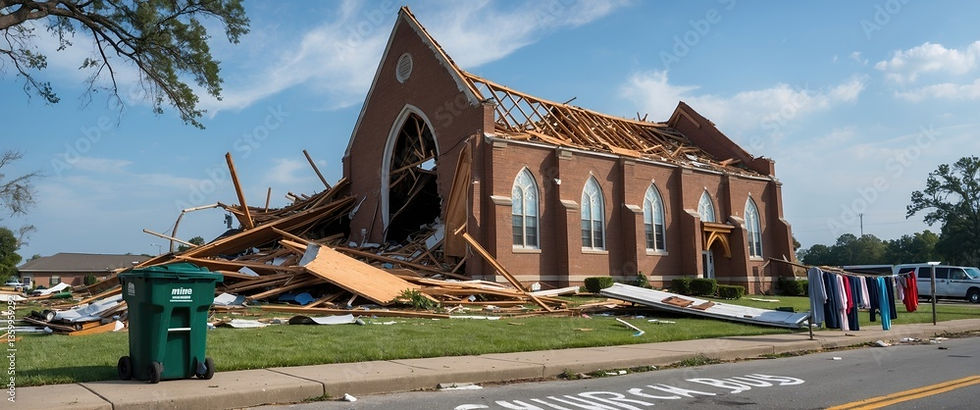Pay Close Attention To Your Policy Language Or You May Get Nothing
- Inge Johnstone

- Mar 27, 2025
- 4 min read
Florida Court of Appeals guts policyholder verdict for failure to prove damages and failure to follow post loss conditions.

In Homeowner’s Choice Property & Casualty Company v. Clark, A Florida appeals court relied on an insurance policy’s language relating to the insured’s post-loss duties and the calculation of damages to reverse an award of $541,247 in favor of a policyholder.
The case arose out of a Hurricane Sally storm damage claim to a home in Perdido Key. The insurer paid approximately $59,000, which it contended was the actual cash value of the damages minus the deductible. Using this money, the insurers repaired the roof and siding but did not make other repairs.
Ten months later, the homeowners hired a public adjuster who submitted an estimate for approximately $440,000 in damages to the home, but the estimate did not differentiate between actual cash value and replacement cost value, but had the same number for both. Usually, actual cash value is defined as replacement cost minus depreciation. As a result, the actual cash value will always be less than the replacement cost value as long as there is some depreciation.
The public adjuster also submitted a claim for personal property but did not use the form provided by the insurance company but used his own form, which again did not break out depreciation. The insureds also did not provide any receipts showing the replacement of any of the items they claimed or receipts showing repairs made to the house. They also claimed lost rental value but provided only gross rental numbers and did not provide any expenses that they would have incurred. Under the policy’s definition of fair rental value, expenses had to be deducted from revenue.
The case went to trial and the jury rendered a verdict of over $541,247. Following this verdict, the insurance company appealed.
The court found that the policyholders violated post-loss duties and did not present sufficient proof of damages as required by the policy. The court found that the policyholders violated the following four post-loss duties:
The Duty to Provide Notice- The court held that the homeowners did not promptly provide notice of the amounts claimed for personal property and the lost rental value of their home when they didn’t provide a proof of loss form until ten months after the storm at the earliest.
The Duty to Protect Property- The court stated that the homeowners did not repair their roof or siding until five months after the storm and then just let the house sit “boarded up.” As a result, the court believed that they breached their duty to protect the property from further damage.
The Duty to Repair Property- The court also found a violation of this “duty” but did not clearly explain its reasoning.
The Duty to Maintain Records and Receipts.- The court also faulted the homeowners for not preserving any receipts and providing them to the insurance company and found that this relieved the insurer from having to pay replacement cost for items of personal property.
Damages
Importantly, the court also focused on the policy language relating to the calculation of damages. For instance, the policy provided that until the home had been fixed or the personal property replaced, the insurer only owed actual cash value. Since the insured had not made the repairs or provided proof of replacement, they could only recover the actual cash value. However, they offered no evidence of either the actual cash value of the damage to their home or to their items of personal property.
In addition to the fair rental value, the policy required that expenses be deducted from rental revenue to reach the rental value. However, the policyholders did not provide evidence of these expenses and so did not produce sufficient evidence.
Takeaways
While I disagree with some of the reasoning of the court in this case, the case provides a cautionary tale to always read the language of your policy after a loss and make sure that you are providing all documents required by the policy. In addition, determine how your policy pays the damages under each different element of coverage and make sure that you provide information addressing each item of the definition. Also, make sure to save all invoices and receipts. It also would not hurt to maintain a spreadsheet of all expenses. If the insurance company provides forms, use these forms even if you also use your own forms to make sure that you have provided all requested information. It is better to over cooperate than under cooperate.
Keep in mind that this can be very difficult to do when you are trying to put the pieces of your life or your business back together. In addition, determining the “actual cash value” of items or a structure on a home would be extremely difficult for most people to do unless they hire an expert. This is where hiring a competent policyholder attorney or public adjuster can prove valuable. If you do so, make sure to discuss both ACV (actual cash value) and RCV (replacement cost value) with them. However you approach your claim, you need to make sure that you read the language of your policy carefully and comply with all post-loss duties. Please contact us if you need any help.



